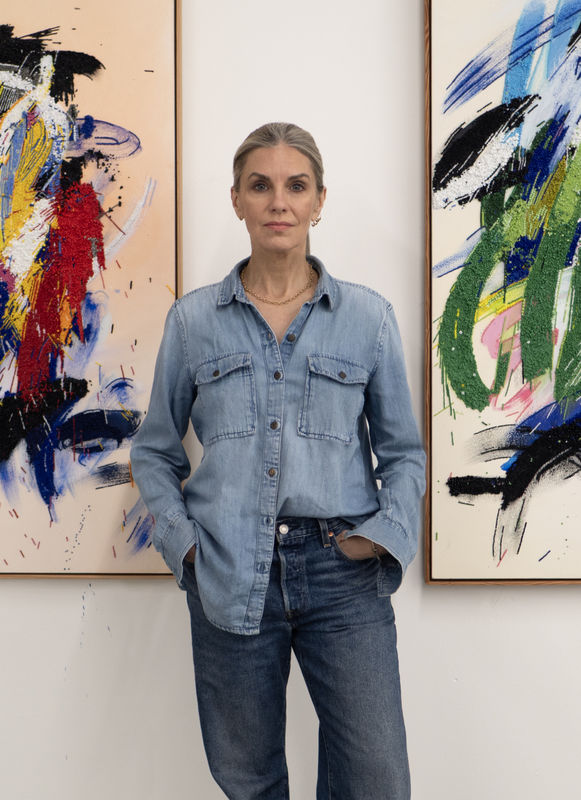Curated by David Salle Beautiful, Vivid, Self-contained
The Hill Art Foundation is pleased to present Beautiful, Vivid, Self-contained, an exhibition of paintings and sculptures curated by the artist and writer David Salle.
The exhibition features works by Richard Aldrich, Frank Auerbach, Francis Bacon, Kevin Beasley, Cecily Brown, Francesco Clemente, Robert Colescott, Verne Dawson, Willem de Kooning, Edgar Degas, Martha Diamond, Lucio Fontana, Giambologna, Robert Gober, Mark Grotjahn, Charline von Heyl, Reggie Burrows Hodges, Callum Innes, Karen Kilimnik, Doron Langberg, Brice Marden, Henri Matisse, Albert Oehlen, Giuseppe Piamontini, Pablo Picasso, Walter Price, Andrea Riccio, Peter Paul Rubens, Amy Sillman, Salman Toor, Cy Twombly, Willem Danielsz van Tetrode, Nicole Wittenberg, and Christopher Wool, along with a painting from 1988 by David Salle.
The exhibition includes works drawn from the collection of the Hill Art Foundation and the collection of Tom and Janine Hill, as well as loans from private collections and artists.
Beautiful, Vivid, Self-contained brings together paintings and sculptures by artists working across different eras, mediums, and geographies to explore the nature of affinity between works of art. As Salle asks in the catalogue essay that accompanies the exhibition: “How can works of art be said to ‘recognize’ each other? How do things made decades or centuries apart, things that may look dissimilar on the surface come to have a communality of tone, and of feeling?”
The exhibition poses a further question: What is the relationship between sensibility and style? Put another way, does an ‘aesthetic personality’ exist, or, can a painting be said to have a nervous system? What is the psychic mapping that undergirds a pictorial attitude, and how can we recognize it?
In grouping the works within the exhibition, Salle taps into the power of juxtaposition, as described by the composer Thomas Adès: “A thing becomes possible which makes another thing possible, which wouldn’t have been possible without it.” Or, as Salle writes, “Juxtaposition is the art of the possible. In visual art, just as in drama, if there is a gun in the first act it must go off in the last. Certain things in a painting create the conditions for other things to occur. Paintings can ‘import’ elements from different aesthetic worlds—if the painting itself has established a sufficiently elastic context. The ways in which that is accomplished are myriad and unpredictable. For the time being, stretchy is good. Stretchy is how we live now.”

















































































































































































